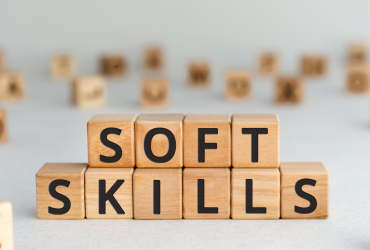Written by Mil Safadi, Marketing and Communications Assistant/Intern
Overstimulated. A word that can be synonymous with anything that has happened in the past two years. We’ve been accustomed to hopping on Zoom calls in our pajamas, mindlessly snacking, and scrolling past one depressing news article after another. As we start to integrate back into our ‘usual’ routines, something that we’re going to have to discuss is workplace functionality. It’s been hard on everyone, certain industries more than others of course, but I think something we all have in common is trying to navigate our way into a new kind of workspace. Before we immediately focus on our workplace personas, the most crucial thing we have to heal is ourselves. This doesn’t mean splurging and spending hundreds on new skincare products or randomly turning your phone off and going MIA, self-care must be practiced every single day and truly is not just focused on the self.
In order to truly prioritize our wellbeing, we must move on from this subgenre within the industrial wellness complex. The term ‘self-care’ was historically coined in 1988 by Audre Lorde, a Black lesbian activist, and writer after she was first diagnosed with breast cancer. In her book of essays, A Burst of Light, Lorde wrote, “Caring for myself is not self-indulgence, it is self-preservation, and that is an act of political warfare.” Lorde’s concept of self-care was an act of retaliation to the entire oppressive system in place that continuously disenfranchises Black people. This idea of self-love cannot be bought with a sheet mask or a session on a peloton while the world is on fire.
As Laurie Penny wrote in her article for The Baffler, “The problem with self-love as we currently understand it is in our view of love itself, defined, too simply and too often, as an extraordinary feeling that we respond to with hearts and flowers and fantasy, ritual consumption and affectless passion.” Real self-love is an action. Real self-love is hard work and dedication over the course of weeks and months and years. For the past decade, we have been sold this ideology by affluent girl bosses that the problem is with us and we must fix it by drinking gallons of charcoal water. This has been an exploitative exhausting never-ending cycle that has been following the blueprint that “Lose weight in one week!” diet fads on every magazine cover at the supermarket created. The entire self-care industry is focused on buying a thing to make you feel better about yourself and to enjoy that thing alone in order to gain some “me time.” Maybe the problem is what we think self-care means. With the wellness industry estimated to be over $4.2 Trillion, I think it can be said that we’re being sold into participating in a system of what corporations want us to believe is self-care.
So, what are we supposed to do then? To put it simply, be kinder. With everything that has happened in the past two years, and everything we have yet to see, being able to be present with another person is truly a gift. While yes, a spa day seems like a great idea, these concepts are fleeting highs. This kind of exclusionary behavior is harmful to ourselves and others. What we put out into the world and to others is just as important as what we do to ourselves. As Penny brings up, we can learn a lot from the LGBTQ+ community: sharing mutual aid requests and subtle reassurance to one another can all go a long way. We should not be so entirely focused on ourselves. We must try to lift others up every day. Collective care for one another cannot be capitalized on. It’s not something Instagram influencers can easily promote and sponsor on their profiles. It’s something that you and I can practice every day from the workplace to the streets. By being a better neighbor, listening to those who need support, even sharing a meal with someone, we can do it.






